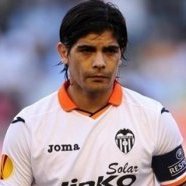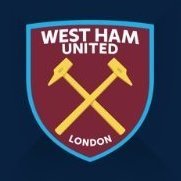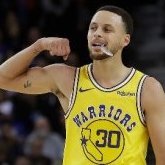Classement
Contenu populaire
Affichage du contenu avec la meilleure réputation le 09/28/20 dans toutes les zones
-
Pour devenir plus créatifs il faut commencer par avoir devant la défense, un milieu capable de faire autre chose que de répéter les circuits de passes automatisées mis en place par Arteta. C'est utile pour aspirer un adversaire qui veut presser pour jouer dans son dos , et aller chercher le côté opposé mais c'est trop "scolaire" , à moyen terme ça risque de montrer ses limites. Ceballos fait trop de touches de balles , Xhaka est utile pour exécuter à la lettre un plan de jeu bien défini mais trop limité pour en sortir et amener de l'imprévisibilité. Partey aurait pu amener cette créativité avec sa capacité à se retourner aller briser les lignes par ses passes et ses dribbles.5 points
-
4 points
-
In the immediate aftermath of Arsenal’s failed bid to sign Jamie Vardy in 2016, the Leicester City striker somewhat implausibly claimed that he had “never” spoken directly with the London club. Dick Law, who served as Arsenal’s transfer negotiator been 2009 and 2018, remembers the situation somewhat differently. “The deal with Leicester was done, the deal with the player was done”, Law tells The Athletic. “He came down to visit with his wife Rebekah, he sat on the couch in front of Arsene… and then he backed off.” As soon as Vardy left Arsenal’s premises without a signature on the contract, alarm bells rang. An Arsenal car took Vardy back to Leicester. “On his way back to Leicester I get a call from the player saying he wants to think about it overnight,” recalls Law. “At that point, you know it’s bad news.” More stalling was to come. Arsenal followed up with a phone call to Vardy’s agent the next day, only to be told he needed more time. The day after, it was suggested Vardy wanted to focus on his commitments to the England squad before making a decision. Although it would be several weeks before Vardy declared his decision to remain at Leicester, Arsenal had all but given up hope of concluding a deal. It was, in some respects, extraordinary for a player who spent nine years in non-League football (he only arrived in the professional game as a 25-year-old in 2012) to turn down a move to a club who were a regular fixture in the Champions League. Vardy, however, felt fulfilled at Leicester. In sporting terms, he was a Premier League winner. On a financial front, Leicester were prepared to give him a second pay rise in three months to convince him to stay. Vardy and his wife had been married a matter of weeks, and had not long moved into the Melton Mowbray home they had lovingly restored. She was also pregnant with their second child. Some things, perhaps, matter more than football. In any case, Vardy presumably feels relatively secure in his choice — at the time the Premier League was paused, Leicester were in third place and on course for Champions League qualification. Arsenal, meanwhile, sit in ninth. The failure to land Vardy ultimately led to Arsenal buying Lucas Perez — a deal the scouting department had considerable concerns over. Perhaps more alarming was the fact that Perez had to be convinced by his agent to consider leaving Deportivo de La Coruna. Perhaps, Law suggests, it was not the right decision. “He loved it there, at La Coruna. It was his home,” he says of Perez. “He had his dogs, his club, his fans. Sometimes players belong in certain situations, and they’re good at certain levels of the game, and when they move beyond that level it’s just not a fit.” Vardy’s decision to turn Arsenal down was brave, but it also showed a certain maturity and self-awareness. In his long association with Arsenal, Law only encountered one other player who demonstrated that kind of cognisance of his place in the world of football: Brazilian goalkeeper Marcos. It was January 2003, and Law was living in South America. Arsenal had lost reserve goalkeeper Rami Shaaban to a broken leg, and had identified Marcos, a Brazil international, as someone who could not only provide immediate competition and cover, but also be Seaman’s successor. At 29, Marcos was, like Vardy, something of a late developer — a man of faith who’d followed Felipe Scolari from Palmeiras to the Brazil national team. He had enjoyed an outstanding tournament at the 2002 World Cup, conceding four goals in seven games. Arsene Wenger and David Dein reached out to Law, and asked him to speak to Palmeiras about acquiring the goalkeeper. Terms were quickly agreed with the club, and the player gave his consent, too. “I kept noticing a certain reticence on the player’s part,” Law tells The Athletic. “But I told myself, ‘Hey, it’s a big move!’ And plus he’s a goalkeeper, they often have that unpredictable mentality!’” Law flew to England with Marcos and his representative. The story of the impending transfer began to break across the British press. “We meet with Arsene and David, everything seems to be fine, and then we were supposed to have the signing the next morning”, says Law. “We’re staying near the training ground, at Sopwell House. At 1.30 in the morning, I get a phone call, and it’s Marcos, and he says, ‘I’ve go to talk to you.’” “And I said, ‘Marcos, it’s 1.30 in the morning!’ But he said, ‘No, I’ve got to talk to you right now, I’m coming over.’ So he came over and he sat down and he said, ‘I can’t do this.’ “Marcos said, ‘I’ve just talked to my father, and my father asked me if I was happy in Brazil.’ He told him he was. Then Marcos’ father asked him how much money he made, and how much Arsenal were offering him — and he told him. And then Marcos’ father said, ‘Money is not everything in life. Your family is here, your life is here, your club is here. Why do you want to move to London?’” Marcos had travelled almost 6,000 miles only to realise the move wasn’t for him. The goalkeeper looked at Law, and asked: “What do I tell Mr Wenger and Mr Dein?” There was only one answer: “The truth.” Early the next morning, the player, Law, Dein and Wenger reconvened at Sopwell House. Marcos explained his decision. Arsenal’s instinct was to try to persuade him, but Wenger swiftly sensed it was futile. “Arsene was always a players’ manager,” says Law. “He could read players. And I think he read very quickly that there was no turning this particular personality.” As Marcos himself later told FourFourTwo magazine: “I had the opportunity to join Arsenal, but this was also a chance for me to show the Palmeiras supporters that what I said about loving the club was true.” The cases of players saying a definitive “no” to Arsenal are actually relatively rare. During Wenger’s reign, the club had a fantastic reputation for talent development. People wanted to play for Arsenal. More often than not, when deals failed to materialise, it was due to financial considerations. “We had to work the market hard, and try to find value in certain types of players. We just didn’t have the luxury of making a mistake”, says Law. “We didn’t feel like we could afford to blow £30 million or £40 million on a player and it not work out.” “While that thinking was limiting in one way, it was very empowering in another. It meant that you really pressed your scouting team to the limit.” Arsenal had the benefit of a full analytics department at that stage, and believed leaning on analytics and scouting was the best approach to outsmart the market. The signing of Julio Baptista from Real Madrid, in an unusual loan swap arrangement with Jose Antonio Reyes, is an example of Arsenal making an adroit, low-risk signing. Twelve months earlier, when he was at Sevilla, Arsenal had been engaged in a tug-of-war with Madrid for Baptista. Wenger had planned to remodel his midfield around the marauding Brazilian. “I remember David Dein going to Seville, trying to negotiate his transfer, and being stiff-armed by the Sevilla management for several days,” recalls Law. “Sevilla had Dein cooling his heels in Seville while they were double-dealing with Madrid.” A year on, Arsenal finally got their man on loan. By then, however, Cesc Fabregas had emerged as the heartbeat of the Arsenal team, and Baptista proved a somewhat awkward fit. Arsenal declined to make the deal permanent, and Law says the Brazilian was “devastated” to leave north London. Another attacking midfielder — of a very different kind — to be recommended by Arsenal’s scouting department was Juan Mata. In the summer of 2011, Arsenal were set to lose Fabregas and Samir Nasri. Mata, then of Valencia, and Villarreal’s Santi Cazorla were proposed as like-for-like replacements. Wenger instructed Law to fly to Spain, where he met with Mata’s father, who represented his interests. They crafted out an agreement over the player’s contract. And then? “Then we waited.” “Juan definitely wanted to come to Arsenal, there was no question about that,” says Law. However, Wenger and Arsenal harboured concerns over the aggregate value of Mata’s contract and transfer fee. As they stalled, Chelsea muscled in on the deal. Did Arsenal ever consider paying slightly over their valuation to prevent a rival landing a target? “I don’t think that calculation ever entered our equation,” says Law. “We didn’t have the money to say, ‘We’ll spend a bit more to block.’” Mata isn’t the only player Chelsea have pipped Arsenal to in recent times. Law remembers “very advanced conversations” with Eden Hazard in 2012. At one point, Wenger even entertained the player’s agent at his north London home. However, those talks did not come to fruition. In this period, Arsenal operated under strict guidelines relating to how much commission they were prepared to pay on any given deal — typically 5 per cent of the value of the salary. In a situation like Hazard’s, where the player was being courted by almost every big club in Europe, Arsenal did not have the financial flexibility to meet the shifting demands from the player’s camp. Four years on, it was Chelsea again who beat Arsenal to the signature of midfield player: this time N’Golo Kante. Wenger had known the player since his time with Caen in Ligue 2. After his outstanding performances in Leicester’s title win, the club investigated the possibility of bringing him to the Emirates Stadium. While Kante had a relatively affordable release clause, the issue was the size of the agents’ fees involved. Two agents were involved in the deal. According to documents from Football Leaks, Gregory Dakad pocketed £6.4 million and Abdelkarim Douis went away with £4.2 million. The reported agent fees were so high, it even dissuaded Paris Saint-Germain from following up their interest, never mind Arsenal. “When things reached an extreme, we tended to back away,” says Law. Riyad Mahrez was another Leicester star who was relentlessly linked with a move to Arsenal. In his case, pricing proved prohibitive. That same summer, Wenger spoke with Mahrez’s agent but unlike Kante and Vardy, there was no set release clause. The financial restrictions under which Arsenal operated meant they had to play particular attention to a player’s resale value. This meant that some signings fell through due to a player’s age. An example of this was Mark Schwarzer. The Australian goalkeeper was the subject of serious interest from Arsenal in 2010. “We knew Mark was top drawer in terms of his ethics and his work rate,” says Law. “We did all our homework on him — he was an outstanding professional, no doubt.” Speaking to Fantasy FC last year, Schwarzer said: “Roy Hodgson rang me. It was about three days before the World Cup in South Africa, and he says to me, ‘Mark, Arsenal have been on the phone. They’re interested. Do you want to go?’ “I went, ‘Definitely. I loved my time at Fulham. It’s been brilliant and really great working under you. But yeah, it’s an opportunity to play Champions League football and play for an unbelievable club.’ So he says, ‘Yeah, we’ll sort it out. We’ll get another goalkeeper in. As long as we get enough money for you, we’ll make it happen.’” As it turned out, Fulham and Arsenal had quite different ideas as to what constituted value for a 37-year-old goalkeeper. When Arsenal submitted their opening offer of around £2 million, Fulham countered by asking for double that amount. It was not an outlay Wenger could justify. Even the great David Villa fell foul of Wenger’s concerns over signing ageing players. The player himself recently admitted he was close to joining Arsenal in 2013, but the club’s interest dates back to rivalling Barcelona for his signature from Valencia in 2010. Even at that stage, Wenger was concerned that a player coming towards the end of his prime years might struggle with the physicality of the Premier League. Villa was 28 when he joined Barcelona, and Wenger harboured doubts as to whether he’d maintain the blistering speed required to flourish in English football. His record at the Nou Camp, where he won two La Liga titles and a Champions League, suggests he would most likely have had plenty to offer. Deals that don’t happen continue to fascinate fans as much as those that do — names like Yann M’Vila have somehow become synonymous with Arsenal, despite the fact that sources have indicated to The Athletic that a deal was never particularly close to materialising. Arsenal’s prudence cost them certain players, but also allowed them to avoid some problematic scenarios. Law still recalls the day he got a phone call from David Dein, saying that Kia Joorabchian was offering Arsenal Carlos Tevez and Javier Mascherano for a £1.5 million loan fee each. Arsenal declined, citing concerns over who held the player registrations, and consequently who would receive the fees. West Ham were less judicious, and Tevez’s goals helped them avoid relegation — but it cost them more than £25 million in fines and settlements. Under the new regime, Arsenal have shown more willingness to accommodate agents’ demands, albeit at a considerable cost. In some respects, the modern Arsenal appear to conclude business more decisively — but there is a price attached. Behind most of the Arsenal deals that didn’t happen, there is a reason. “We had our internal guidelines, we were very cognisant of the rules, and Arsene had a clear sense of value,” explains Law. “That governed the way we did business.” As football wrestles with a new financial reality, it will be fascinating to see how the club choose to navigate the new landscape of a transfer market that has shifted once again.4 points
-
Quand l'équipe prendra l'eau par manque de couverture des milieux ils diront que c'est la faute des défenseurs et qu'il faut en acheter des nouveaux... Pardon mais d'où 50m c'est donné ? Aucun club n'est sur lui, Van de Beek que je trouve meilleur vaut 40m, Lyon doit absolument vendre, il joue dans une équipe qui a fini 7ème de ligue 1... Le final 8 incroyable en ldc je nuancerais aussi... Lyon a rien dominé du tout : 36%, 28% et 34% de possession contre la Juve, City et Bayern (Rien à voir avec l'ajax de Van de Beek qui avait surclassé le Real la Juve et Tottenham). Aouar contre City il est transaprant tout le match et devient décisif seulement à la fin en contre parce que les citizens doivent absolument marquer... Sauf qu'on a justement besoin d'un joueur capable d'aider à contrôler la possession contre ce genre d'équipe. Contre le Bayern il est inexistant et contre la Juve pas vu (sur le résumé il fait une belle assist à l'attaquant tout de même). Ps : Le pire c'est que j'aime bien Aouar mais on a tellment besoin d'un 6 voire d'un 10 créatif proche des attaquants que c'est assez frustrant de voir le club claqué autant d'argent sur un 8...3 points
-
1 point
-
Il sert à quoi ce mec ? Qu'il retourne planter des arbres ou faire des shootings. Il a plus rien d'un footballeur, lent, jamais au marquage, techniquement nul, physiquement nul. Je n'en peux plus de lui1 point
-
Mouais, le juger sur ce match en 20mn quand on voit le nombre de ballon touchés des attaquants. Je comprends pas1 point
-
Denilson bis... Il sert à rien avec ou sans ballon... Quand je vois ce que Ceballos a proposé en 30mn C'est un joueur d'effectif max et même avec ça je préfère donner la chance aux jeunes.1 point
-
1 point
-
J'ai vraiment le pressentiment qu'on va tout donner pour Aouar et négocier son prix au plus bas possible et une fois ce dossier clos, on va faire péter la clause de Partey. Comme ça Aulas pense qu'on a pas les liquidités et on pourra avoir Aouar au meilleur prix. Bon je pense que je rêve un peu mais bon1 point
-
On prenait la sauce au milieu de terrain en 4-3-3 j'ai toujours trouvé. En transition, la plupart des milieux où il y avait Xhaka, c'était très compliqué d'ailleurs (sauf les 6 premiers mois sous Emery, où Torreira était très bon, ou en Europa League cette saison), et quand on avait le ballon, on subissait bien trop le pressing adverse. Concernant l'aspect offensif, je te rejoins entre le 3-4-3 et 4-3-3, on est très faible dans la créativité depuis de nombreuses saisons, et c'est là d'ailleurs que j'attends Arteta au tournant pour les prochaines saisons (ça va être encore juste cette année je pense). Avec l'effectif actuel je n'ai rien de mieux à proposer Disons que le recrutement d'un Partey et d'un vrai milieu offensif bon dans la création nous permettrait de gagner de manière non négligeable en créativité je pense, et le tout en repassant dans un 4-3-3 qui là serait également adapté à l'effectif. Le 3-4-3 me semble vraiment adapté à des adversaires comme Liverpool ou City, surtout que l'on arrive à bien pointer leurs manquements j'ai l'impression lorsque l'on joue contre eux sous Arteta et à leur faire mal en transition. Mais contre des Sheffield, Burnley ou Aston Villa je pense qu'avec un meilleur milieu, on pourrait très clairement imposer notre jeu, tout en limitant le danger des transitions. Et pour moi le gros problème du 3-4-3 en fait c'est l'absence de 10... Et comme on n'en a pas vraiment dans l'effectif, ça m'emmerde moins de jouer comme cela.1 point
-
Ce n'est pas rabaissé Aouar que de dire qu'il n'est pas forcément le profil que l'on devait aller chercher en priorité, ou tout simplement de dire qu'il est inconstant. Mais encore faut-il l'avoir vu jouer plus de deux matchs dans sa carrière pour le savoir... Pour ma part j'ai un peu de mal à voir où Arteta compte le faire jouer. Si on reste en 3-4-3, il ne pourra pas jouer à gauche (que ce soit ailier ou piston). Dans l'axe, Ceballos n'est pas venu pour rester sur le banc et un milieu Ceballos-Aouar c'est juste pas possible (surtout que Xhaka semble indéboulonnable). Si on repasse en 4-3-3 comme on en a souvent entendu parler, Aouar n'a encore rien montré de bon au poste de 10, on est dans du domaine de l'expectatif donc à part le voir relayeur avec Ceballos un cran plus haut, ou alors tenter un pari en 10... j'ai un peu de mal à saisir dans quel profil on l'attend. Pour ce qui est de la qualité du joueur, pour ma part je ne la remettrai pas en question et 50M c'est un prix logique (pas non plus une bargain de ouf). C'est plus dans le sens de sélection de profil que je me pose des questions. Ca devrait être la cerise sur le gâteau une fois toutes nos lacunes comblées. Là on n'a toujours pas trouvé de milieu de terrain qui équilibrerait assez notre équipe pour repasser en 4-3-3. Pour ce qui est de l'inconstance d'Aouar, je l'impute aussi à l'OL. Toute l'équipe choisit ses matchs depuis 3-4 ans. Mais bon je disais pareil avec Ndombele, on voit ce que ça donne à Tottenham, donc à voir.1 point
-
Aouar est excellent sur certains matchs. D'ailleurs quand Liverpool a failli faire Fekir, j'étais degouté qu'on prenne lui et qu'on se penche pas sur Aouar donc je vais pas faire l'hypocrite en disant que c'est surpayé ou 100% surcoté mais de là à dire que 50M c'est cadeau en période de pandémie.. j'irai pas jusqu'à là. Encore une fois Aouar a un très fort potentiel et pourrait viser un top club (Liverpool, City en PL par exemple mais ces clubs là sont full de chez full) mais comme pas mal de joueurs en Europe qui ont beaucoup de potentiel. Il ne faut pas sous estimer son talent et cette potentielle recrue mais il ne faudrait pas le surcoté non plus. Niveau irrégularité Aouar c'est la crème de la crème. Et beaucoup de joueurs ont ce défaut, ceux qui confirment au haut niveau sont ceux qui arrivent à le gommer mais beaucoup n'y arrivent pas et resteront des bons joueurs la plupart du temps et un match sur 5 des joueurs exceptionnels. Je pense personnellement que vous arriverez à le signer vu que contrairement a Partey vous n'alignerez pas 50M upfront. Impatient de voir ce qu'il va donner. Par contre, beaucoup le voit en 8 mais à Lyon il joue sur l'aile gauche et pas au coeur du jeu. Donc à voir ca aussi.1 point
-
Non mais le Barça va pas démentir en disant qu'il n y avait qu'un intérêt et pas une offre. probablement qu'ils ont eu des contact avec le clan Aubameyang. Ce que je dis c'est que si réellement une offre avait été formulée et qu'Auba voulait se tirer (ce qu'il sous entend en permanence... Notamment si une offre du Barça ou du Réal était vraiment arrivée) il ne serait plus là aujourd'hui. Y'a y'a un gap énorme entre intérêt concret et offre quand même.1 point
-
1 point
-
Ca a été répété des dizaines de fois. Aouar on peut faire un paiement étalé comme c'est le cas pour 90% des transferts. Partey on doit faire un paiement immédiat. Toto a 5 euros dans sa poche. Il peut acheter une guitare à 40 euros avec paiement en plusieurs fois et première mensualité de 5 euros, ou une batterie à 50 euros. Qu'est-ce qu'il fait ?1 point
-
De quel leçon tu parles ? On a déja l'un des meilleurs Arg de PL à savoir Tierney et on a un retour en force de Bellerin. Rajoutes Niles , Cedric et tu as ce qu'il te faut. Achat d'un Top DC ? on a acheté Gabriel et Saliba , tout le monde s'aligne à dire que dans quelques années on pourrait avoir la meilleur charnière de PL si tout va bien. Retour de Bale ? ok c'est un top joueur mais toute une saison blanche à son âge , personne n'est sûr de son niveau. Et si tu compares on a recruté Willian dans le même contexte. Lo Celso je lui trouve rien de spécial et Ndombele tu sais trés bien que Mou' l'a mis au placard depuis longtemps. Ezio t'es toujours là a envier les autres équipes mais franchement là , je suis pas d'accord. Depuis longtemps, tout le monde s'accorde à dire que notre club à un projet sur long terme qui a l'air alléchant. Nouveau Staff, nouveaux joueurs , nouvelle direction et un jeune entraineur qui a insufflé la gagne, la cohésion et a réglé beaucoup de problèmes en peu de temps. Y'a quelque chose de bien qui se passe chez nous et on le sent tous donc f*** les Spurs1 point














